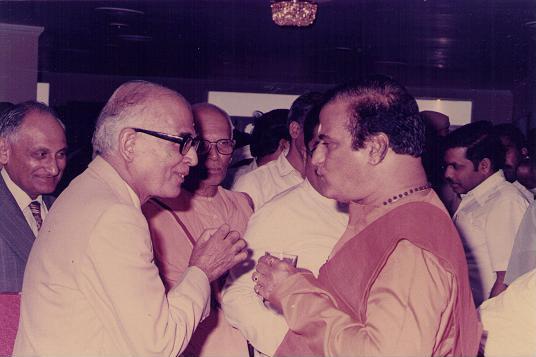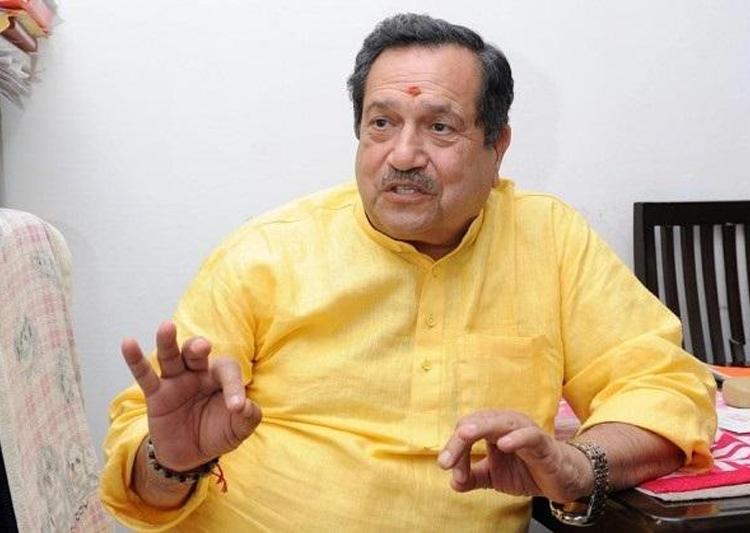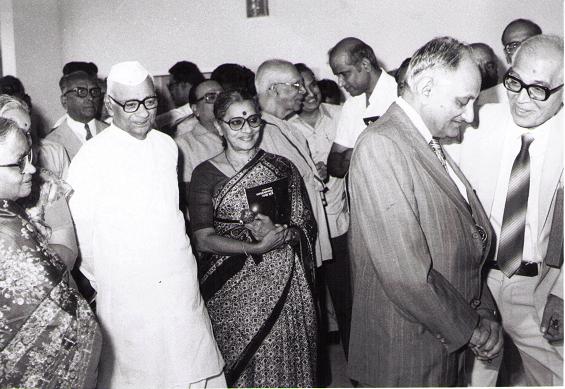Vaman Rao’s Memoirs: Part-III

SCHOOL, BINCH AND PEDAGOGUE: I think my father was my first teacher. One day when I was 7 years old, my eldest brother took me to a Government School in Hanamkonda (Warangal) and straight away I got admitted into third class. Maqdoom Mohiuddin was the class teacher. He welcomed me as he knew my father. In those days the medium of instruction was Urdu with English as a compulsory subject. For Muslim students there was a subject called “Diniat” (Religion) and for Hindus “Akhlakial” (Ethics). Persian and Telugu probably Sanskrit too were optional subjects. In order to strengthen my Urdu father asked me to take Persian as optional. This continued till 7th class. We had English medium in our school from 8th to 10th catering for SSLC. We had a kindly person of understanding Hafiz Ullah, as our principal to whom we represented it will be easier for us to take English medium in class 8, if the same is arranged for class 7. He readily agreed. It was a blessing to us. In class 8, I took Mathematics as optional and Urdu as second language till SSLC. In Intermediate also my second language was Urdu.
I was supposed to be a good, obedient student with more than average abilities. Therefore teachers liked me. I did participate in games. More than that I used to watch tournaments and sports, in which I was interested. We had compulsory Drill, manual training (Najjari) and gardening. Our Najjari teacher was one Deen Dayal, brother of famous film actor Jayaraj. He taught us wood work. I was given only half freeship as my father drew in the eyes of the school, a handsome pension of Rs.66.60 paisa. But, as a good student, I used to get a bursary of Rs.20 or so for a couple of years. We had no progress reports. The vice-Principal would visit each class and read out the names of those who have passed. The names of those omitted had failed. They would go home downcast. Each class had a small library outside the entrance with abridged edition of books by celebrated authors like Dickens, Scott, Stevenson, Hardy, Shakespeare and others. Thus we were introduced to such classic books right from school. We used to have debates. A novel idea struck us to collect a couple of small coins every month and before summer vacation have a small party. Most of my classmates were from middle class families except a couple of them who came in a horse-driven carriage, rarely by car. We all walked to school. We used to get a new type of student suddenly when a son or brother of a high officer was transferred to our town. I remember a Ganesh Pershad (brother of the only Hindu Superintendent of Police in Ex Hyderabad State, Shiv Kumarlal who later became Inspector General of Police), fresh from the capital enthralling rural kids about city life with a new accent. He used to come to school probably in a police car. Much later I sighted him as an Inspector of Police at Hyderabad and exchanged notes about school days.
My classmates were friendly to me as I was to them, helping and not treading on anybody’s toe. Sadiq Hussain, (son of Ali Nawaz Jaddi, a good English teacher who liked me because I used to do well in English) and I were fast friends. I lost sight of him till one day his widow knowing our friendship which he might have told her came to me and requested me to get her a job as a school teacher. I had never seen her. I felt it was my duty to help the widow of a fellow student with children. By God’s grace she got the job and I was happy.
When I was in seventh class, I remember someone pointing out to a boy in Intermediate and said he was P.V. Narasimha Rao (who later became India’s Prime Minister). Our mathematics teacher R. Subramaniam, a Tamil used to tell us in his own imperfect Telugu: “You should emulate that short fellow Narasimha Rao. He is so brilliant, first class first in Mathematics.”
It should be revealing to the present generation in Telangana that most of our teachers were from Andhra, Mysore and Tamilnadu. In the case of Muslims, they were from North, one from Meerut (U.P.) (who used to mention Meerut’s merits). He taught us Urdu. Another teacher who taught us history was Hashmatullah Aharary Samiu Zzaman from Allahabad. He would come every day in a different suit. The secret being, he would alternate between his large collection. A Kannadiga B.H. Ramachandra Rao, a Mathematics teacher of a school in Manthani, whose claim to fame was that he caned P.V. Narasimha Rao, when he was his student. He was the Superintendent of the Intermediate College of which my high school formed part. He was a key figure in the school with enormous influence on teachers whose teaching periods he fixed. He was a power to be reckoned with because of his efficiency and capability. Our school had a tennis court, at which some of our teachers like S.V. Ramakrishna Rao ( SVR), Hashmatullah and even BHR played. We had billiards room with a beautiful green table and I used to peep to watch the dextrous and sure way in which the game was being played. Long after I left school BHR became my relative, his niece Sundara being married to my elder brother, Lakshman Rao.
An English teacher Y.R Iyengar from Mysore, who was short-statured and used to be overawed by tall students, had his own way of teaching grammar. He later became lecturer in Nizam College where I studied. The relationship between teachers and students was one of cordiality and reflected a sincere desire of the former to give their best to the latter who not only were disciplined but took studies seriously. Some teachers showed interest in and guided intelligent students. For instance Rangaiah Naidu lent me Gora by Tagore and Nehru’s autobiography, which kindled my interest in literature and national affairs. Muthyalaswamy Naidu our Maths teacher took a liking for me so much that he used to carry me on his bicycle to his house and have his wife serve us tiffin. I used to help in piling up note books for correction by him. Such paternal affection to pupils is scarce now.
My two older brothers were in the same class, surprisingly and I used to walk to school with them. Our hall at home was our study room and it doubled up as a bedroom. where we slept. As the school was not far off we used to come for lunch and our father used to wait at the entrance for us. We had only tea in the morning before we started for school.
My father had a mind of his own with set opinions and nobody could change him or his decisions. He did not come to attend my maternal grandfather’s last rites, while he sent my brother and children in a borrowed car. Driver Arjun Singh showed us the Elgondal fort, which visit gave me an idea as to how our ancient kings ruled. It was long thereafter that I saw the famous Golkonda fort near Hyderabad.

Our school occasionally arranged for a stage show or a talk by a visitor. I remember an interesting speech on the importance of Scouting from someone from Kandy, Ceylon (now Sri Lanka). Our teacher Ananda Rao (a Christian who used to wear a dhoti to school) asked me to join the scouts. I was eager to but could not, for the simple reason that my father could not afford the money for the scout dress, canvas shoes etc. Likewise, on a the Silver Jubilee celebration of the reign of King George V, we were asked to buy badges costing four annas. As it was compulsory my father had no other go but to agree. Similarly, at the time of the Silver Jubilee of Nizam, the Government issued silver badges in the shape of Nizam’s crown, to be worn on our shirt that cost eight annas, which I had to buy or bear the pain of ostracisation. Amongst shows I vividly recall was a German acrobat’s feat arranged in the school where a large stone was pounded into his back and he took it lying down, non chalantly.
Amongst other early day memories were: the breaking out of the Second World War (that impacted India, as it was officially a partner with Britain to defend German onslaught), the Japanese thrust from the East upto Burma, the formation of Indian Army (under the command of Netaji Subhash Chandra Bose and his Azad Hind Government) to take strong action against nationalist forces; The Congress Governments coming into being after elections conducted under 1937 Government of India Act in British Indian provinces resigned as a protest against Britain declaring war against Germany without consultation and unilaterally. Rajaji (C.Rajagopalachari known as C.R) then Chief Minister of Madras, was against resignation of Congress ministers, but the majority opinion prevailed led by Gandhiji. Besides Rajaji the provinces had stalwarts as Chief Ministers like Pandit Govind Ballabh Pant in U.P., B.G. Kher in Bombay, Sri Krishna Sinha in Bihar and Bishwanath Das in Orissa. The void left by the Congress was fully exploited by Mohammed Ali Jinnah, President of the Muslim League to strengthen the party with the encouragement of the British as against the Congress. When Russia was attacked by Germany it became a people’s war and communists also supported war efforts and got mileage from the Government. Till then the comrades were against what they called imperialist war.
The happenings in British India and the stirrings for freedom had also an impact however mild, in the princely state of Hyderabad. The people under various banners including Congress fell in line. They experienced double-distilled slavery and their voices were muffled and weakened and the lives of the common people were adversely affected. Rationing was introduced, with limited quota of rice, kerosene and sugar being available on showing proof of ration cards. The rice supplied was below par. When kerosene was scarce, we used wicked oil lamps to read. We did not have electricity supply. Air raid precautions were taken by digging a trench in the shape of W. Petrol was rationed. Trucks were coal-fired. Most part of my school life was during the war period 1939-43 and thence to 1945 when peace was declared.
Since Warangal was not a centre for SSLC examination, I had to go to Hyderabad, for the first time. I had no idea whatsoever of a city, its cement roads, its cycle rickshaws and electric lights. As I was new to the city, my father accompanied me in the train from Kazipet (Hanamkonda) to Hyderabad which took 6 hours to reach the destination at a mere cost of Rs.2 each! My eldest brother was employed with the Public Works Department, lived in Sultan Bazar, Hyderabad. There was a high way that was called Shah-rahe-Osman (Royal Road) by which road he used to visit his mother’s tomb in old city. It was later renamed as Bank Street as two major banks, Imperial Bank of India (later State Bank) and Central Bank of India were located. The whole area was British administered till 1930s when it was ceded to the Nizam except the spacious stone walled Residency where the British Resident resided and reigned. (To be concluded)




